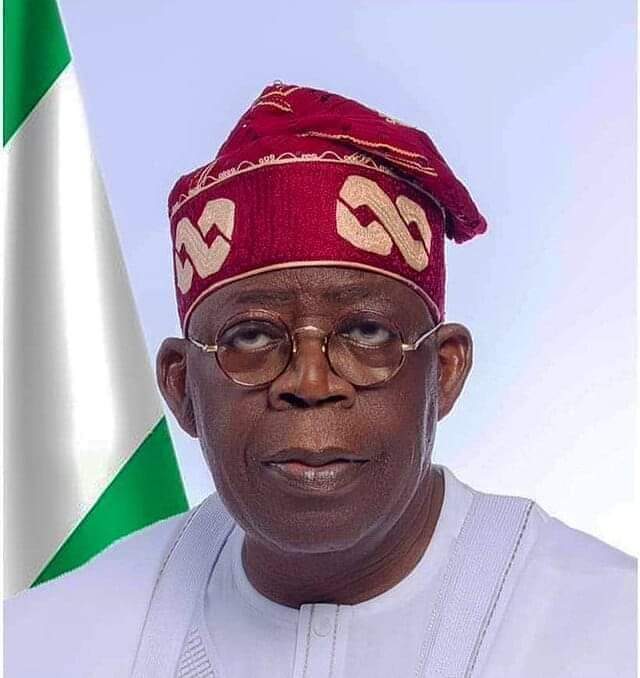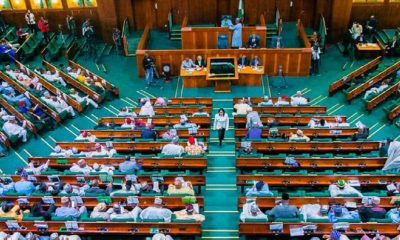Oil and Gas
NNPCL not transparent on subsidy, dollar revenues – W’Bank

The Nigeria National Petroleum Corporation Limited is not transparent about the financial gains from fuel subsidy removal, the World Bank has disclosed.
This extends to subsidy arrears that are still being deducted and the impact of subsidy removal on federation revenues, the bank noted. The Washington-based made this call in its Nigeria Development Update, December 2023 edition titled, ‘Turning The Corner (from reforms and renewed hope, to results).
This is the Minister of Finance and Coordinating Minister of Economy, Wale Edun, revealed that the government was ready to scrutinise the revenue flow from the NNPCL.
According to the World Bank, while revenue gains from the exchange rate reforms are visible, more clarity is needed on oil revenues, including the fiscal benefits from the PMS subsidy reforms.
It declared, “nominal oil revenue gains have been evident since June; these are mostly categorised as “exchange rate gains”, suggesting that they are due to the naira depreciation.
“Except for the exchange rate-related increases, however, there is a lack of transparency regarding oil revenues, especially the financial gains of the Nigeria National Petroleum Corporation from the subsidy removal, the subsidy arrears that are still being deducted, and the impact of this on Federation revenues. It is also unclear why retail petrol prices have not changed much since August, despite fluctuations in the exchange rate and global oil prices.”
The Bretton Woods institution further expanded that gains in net oil revenue of the federation were lower than what they should have been considering what the removal of fuel subsidy should have added to the accounts.
According to him, the funds saved from subsidy removal “will now be used more directly and more beneficially for you and your families.”
However, there have been concerns that the dividend of subsidy removal has not trickled down to the average Nigerian.
Recently, a former Governor of the Central Bank of Nigeria, Sanusi Lamido Sanusi, alleged that the NNPCL might not be remitting enough dollars to the federation account despite subsidy’s removal.
Speaking during the Bank Directors Summit organised by the Bank Directors Association of Nigeria recently, Sanusi, said, “The exchange rate needs to be stabilised and we have to address the fundamental question, why is there no money coming in?
“Why is the NNPCL not able to bring in dollars? Am sorry this is the question that cost me my job and I will continue asking this question until NNPCL fixes it up or until I die. Where are the dollars? We need to shine a light on the NNPCL. The finance minister cannot tell you because he doesn’t have a monitoring system that reports to him.
“The finance minister can’t tell you how many barrels of petrol we produce and export. It is only the NNPCL that can give those figures. The finance ministry needs to know how much oil we produce daily, how much we sell, and where the money is going. We are no longer paying subsidies so where are the dollars? It was under recovery during the subsidy era and that has been stopped, so where is the money?”
Sanusi noted that the NNPCL was opaque about its dealings, shrouding many of its dealings in secrecy.
NNPCL dollar revenues
Defending the oil company’s finances, the NNPCL’s Chief Financial Officer, Umar Ajiya, who was representing the Group Managing Director, Mele Kyari, disclosed that since the inflow of dollars into the country is tied to oil revenues, the country is facing the consequence of falling oil production, insecurity, and lack of investments in the sector.
He also said the NNPCL had been using its revenue to import refined PMS and service debt. He said, “Just to clarify and let the audience go with a well-balanced information. The inflows of dollars into the country are tied to oil revenues and the oil revenues are driven from oil production.
“The consequence of what we are facing today is a fall in oil production simply because of insecurity and lack of investments. The net dollar accruable from oil operations is what the NNPCL uses to import PMS. The PMS is sold in naira, you can’t sell it in dollars. Consequently, you would find out that the net dollar inflows into the NNPCL coffers are spent on the import of basically PMS and debt service.”
Ajiya stressed that the surplus dollars inflow to the CBN and any other bank in the country can only happen when the country starts producing PMS over its domestic requirement.
According to the CFO, adequate forex inflow can also happen if insecurity is addressed, and such development will attract partners to bring in fresh dollars in the form of investment to oil operations.
He added, “So until such a point where we have excess production over and above what we consume, then we will begin to see much dollar liquidity coming into this country. The whole consumption pattern of most Nigerians is foreign import-dependent and until we come to a position whereby, we begin to consume what we produce and also add value to our raw materials to bring further FX into the country.”
It said the number of poor Nigerians rose from 79 million in 2018 to 104 million in 2023, with urban poor — more exposed to inflation — increasing from 13 to 20 million, while the number of poor people in rural areas increased from 67 to 84 million.
It argued, “In the medium term, the reforms will reverse this trend through higher growth and lower inflation, but to a limited extent, with poverty rates decreasing from 46 per cent in 2024 to 44 per cent in 2026.”
According to the World Bank, the successful implementation of the initiated reforms will be the first step toward improving Nigeria’s growth prospects.
It highlighted that the implementation of fuel subsidy removal and foreign exchange unification rate would push economic growth to 3.5 per cent between 2023–2026, adding 0.5 percentage points to the growth potential in a scenario in which the reforms had not been implemented.
The global bank further stated that in the medium term, the economy will begin to benefit from increasing fiscal space for development spending.
While noting that inflation will begin to fall in 2024, it added, “Together, such reforms would boost investment and productivity across sectors, unlocking the stronger growth that Nigeria’s economy demonstrably capable of, and allowing economic development to regain its fast pace.”
Credit: Punch

























